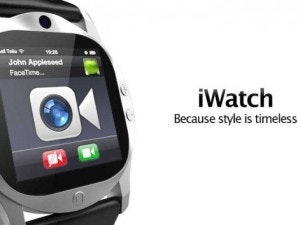Apple Inc. (NASDAQ:AAPL) is rumored to be working on an iWatch. So is arch rival Samsung (NASDAQOTH:SSNLF). Is it time to start wearing our computers?
The computer watch

However, what exactly will an iWatch do? The screen size will be small, so there are notable limitations. After telling the time, an unnamed Apple Inc. (NASDAQ:AAPL) employee told Reuters that the functionality might include making phone calls, caller ID, GPS, and a pedometer. I doubt any of these are compelling enough to kill LVMH Moet Hennessy Louis Vuitton’s watch business.
Just toys?
The limitations are a big part of the problem. How much of a computer can be put into a watch and how much functionality can a small screen provide? If the answer is not much on either account, then Samsung and Apple Inc. (NASDAQ:AAPL) are only making expensive add on gadgets. Sure, they might sell a lot of them, but they won’t be the revolutionary product either company desperately needs.
While one rumor is that Samsung has a better shot at breaking into the market with a viable product because it has full control of the manufacturing process, so what? Will a person really put down their $1,000 Tag Heuer watch, an LVMH nameplate, to wear a stripped down commodity computer watch? Watches are a fashion item that denote status and wealth, and unless the iWatch concept gets co-opted by the fashion industry, such devices will be little more than interchangeable toys.
Google Inc (NASDAQ:GOOG)
Google Inc (NASDAQ:GOOG) has a habit of working on far out ideas. For example, the company’s self driving car is the stuff of science fiction brought to life. So, too, are founder Sergey Brin’s glasses. This futuristic device, nicknamed Glass, projects information into a user’s field of vision.
In February, Brin extolled the virtues of not having to constantly check a phone. An act he describes as socially isolating. Still, the push is interesting because it morphed the concept of a computer into a functional object that serves two useful purposes without compromise.
The digitization of everyday products has been going on for decades with items around our homes. For example, a microwave is far more intelligent today than it was 10 years ago. TVs, in fact, are quickly morphing into Internet portals, absorbing Wifi connections to directly stream content from companies like Netflix, Inc. (NASDAQ:NFLX) and Amazon.com, Inc. (NASDAQ:AMZN).
So why not have glasses act as a carry around computer screen? Google certainly has the money to support this project. Though I doubt too many people feel their phones isolate them socially, having an innocuous “pop up screen” is an idea that could be quite desirable from a convenience standpoint in cars, meetings, and just tooling around the house. Add in functional voice control and you have an impressive option.
Functionality?
Google’s glasses, then, are an unobtrusive item that could materially benefit users. Leave the phone on, stick it in a pocket or purse, and let the glasses be the primary visual device. That’s far more compelling than looking at your wrist every two minutes. Brin could be on to something, especially if Google can throw some advertising up along the way.
One thing a watch might have going for it, however, is the medical angle. Sensors for monitoring a person’s vital statistics was another functional item mentioned to Reuters. That could prove to be a compelling selling point for many people. In fact, such sensors connected to the Internet could allow patients to be treated in their homes instead of in medical facilities.
So, for a niche group, an iWatch might make some sense and help keep the nation’s medical bills down. That’s probably not enough of a market to justify a big iWatch push, though.
Keeping sales up
The problem that both Apple Inc. (NASDAQ:AAPL) and Samsung face is the saturation of the mobile device market. Without a new device, they will have trouble expanding their businesses. The computer watch isn’t compelling enough to think that it will be the next big breakthrough for either company. Investors shouldn’t buy these mobile giants hoping it will be.
Google’s Glass, meanwhile, looks far more desirable on a functional level. It could be the product that helps move the search and advertising giant into the device space in a differentiated way.
Reuben Brewer has no position in any stocks mentioned. The Motley Fool recommends Apple and Google. The Motley Fool owns shares of Apple and Google.
